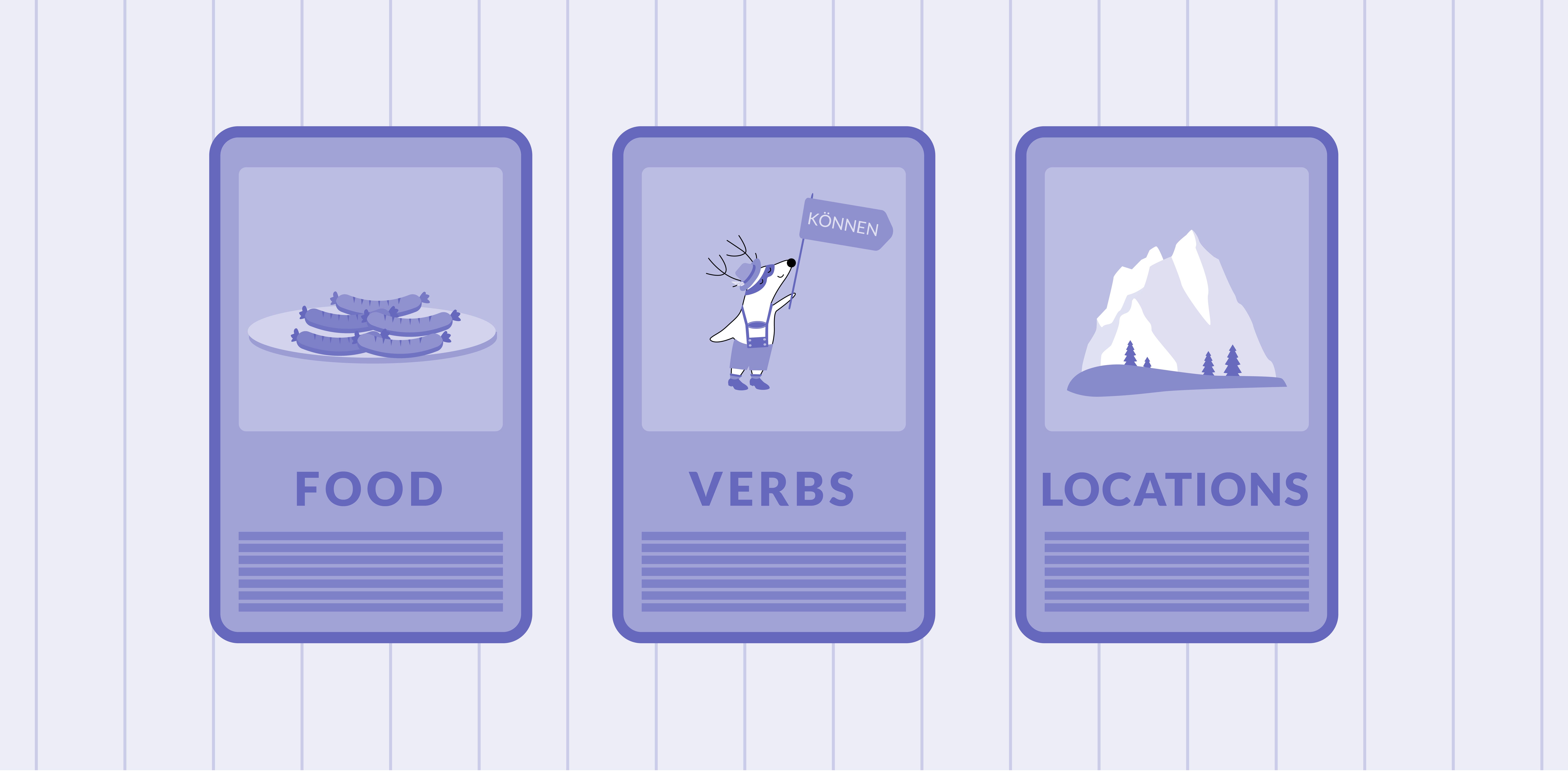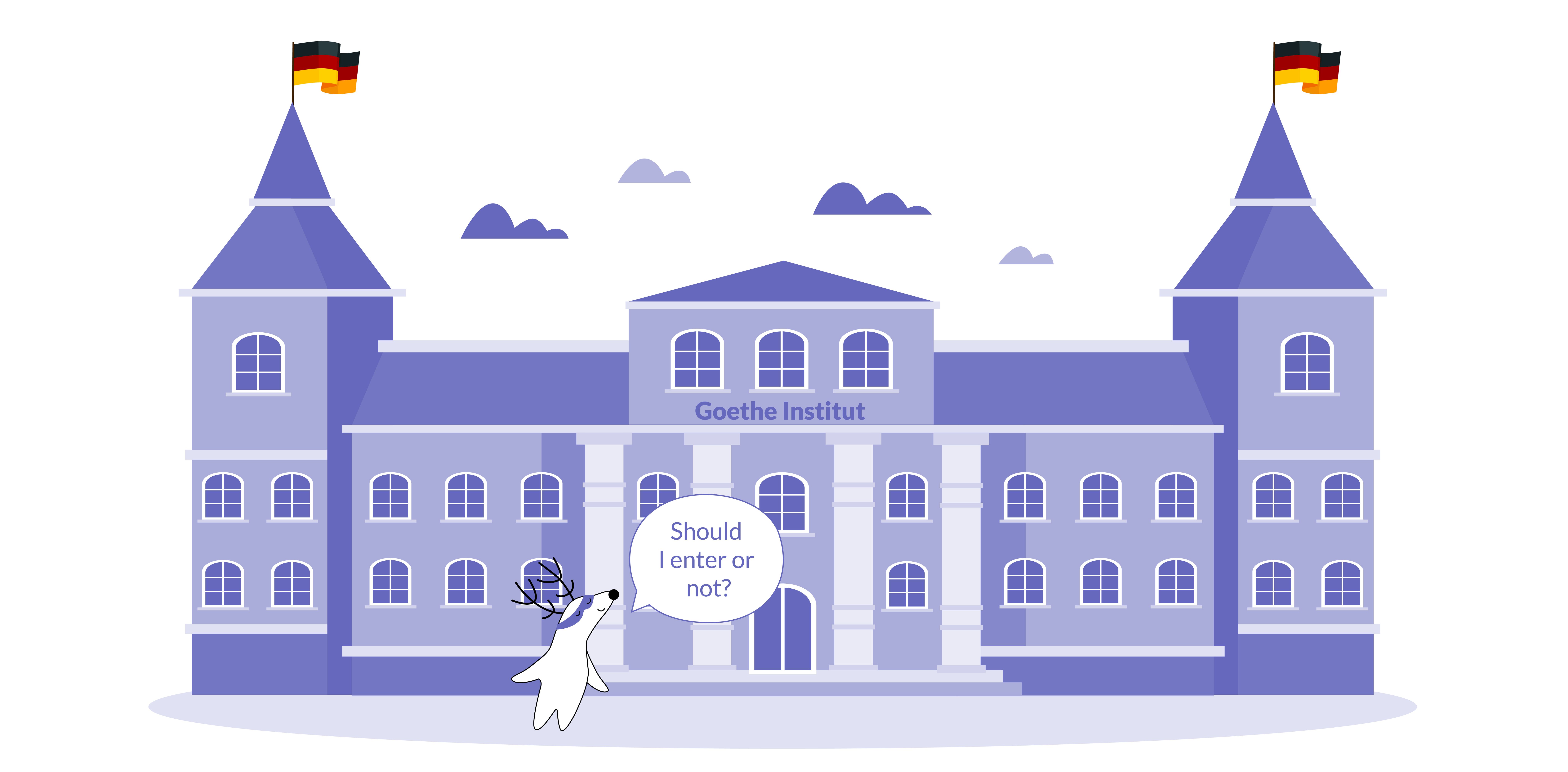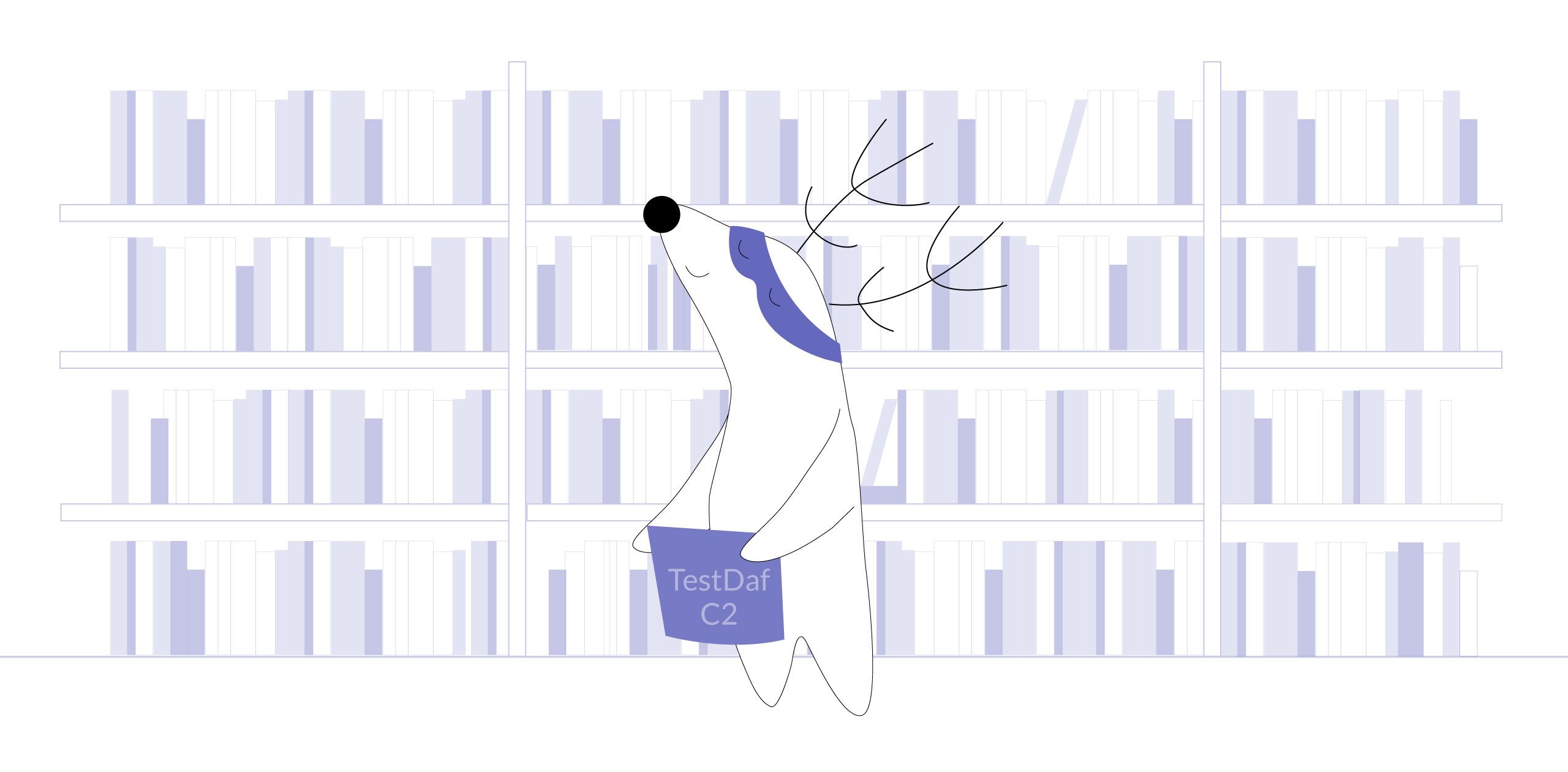
If you’re looking to improve your career prospects, learning a foreign language is a great way to do it. And, when it comes to foreign languages, German is one of the most important ones you can learn.
In fact, with German being the second-most-spoken language in Europe and one of the main languages of business, many employers are eager to see that candidates have some certification in German.
That’s where this article comes in. Here, we will discuss everything you need to know about German language certification: what different levels there are, which tests you should take depending on your needs and goals, and how to best prepare for these exams.
So, whether you’re just starting out or are already quite advanced in your German studies, read on for all the information you need to get certified.
Learn German with Langster
Why You Need a German Language Certificate
Many people decide to learn a foreign language in order to add another skill to their CV or because they are planning to travel abroad. But, there are also plenty of other reasons why someone might want or need a German language certification, including:
- Improving career prospects – if you’re looking for work in the business sector and know that fluency in German is important, having a certification can set you apart from other candidates and help you score your dream job.
- To apply for a job abroad – even if your profession does not require fluency in German, most companies are looking for candidates who are able to communicate with customers and employees in their main workplace language. Such companies can require the applicants to provide German language certificates aside from a CV.
- Studying abroad – if you plan on studying at a German school or a higher education institution, you will be required to prove German language skills through an exam such as the Goethe-Zertifikat. Sometimes, you can provide a major German language diploma – for example, if you studied German at an appropriate level at your previous school.
- Immigrating to Germany – if you are planning on immigrating to or just working in Germany, it is important to know that you will need appropriate skills in the country’s native language.

Common German Language Certifications
There are many different German proficiency tests available, and they vary in terms of what they measure. Some focus more on written skills, while others place a greater emphasis on the oral comprehension aspect.
Here is a quick overview of some of the most common types of certification available:
Goethe-Zertifikat
One of the most popular German testing centers is the Goethe-Institut, offering multiple different exams for all levels.
The best-known and most widely recognized certification exam from this organization is the Goethe-Zertifikat C1. Providing this certificate is often a part of German university entrance qualification. However, taking this test can also help you prove your German language proficiency when applying to schools both in German and Switzerland.
The test focuses on reading, writing, listening, and speaking skills. While grammar is not an official part of the test, it does play an important role in completing the tasks, so remember to pay attention to it while studying.
It can be taken individually or in a group setting, either online or at one of their many locations around the world. The price is around EUR200, but there are discounts for participants in the German courses at the Goethe Institute.
TestDaf
TestDaf is another German language test that is recognized around the world, which grades your skills based on three German language proficiency levels – from B2 to C1. It can be used as proof of your German language proficiency if you want to study or work as an academic in a German university.
This exam assesses speaking, listening comprehension, reading comprehension, and writing skills. The topics of the tasks are all related to higher education to ensure that your skills are appropriate for the learning environment in another country.
TestDaf can be taken at any licensed test center around the world as well as in German universities. There are six fixed dates for when the test is held each year. The price varies depending on where you take it, but usually stays around EUR200.
telc Deutsch
The European Language Certificates, or telc, are a number of standardized language tests used for checking proficiency in ten languages. The German test is a widely recognized assessment of German language skills and has a focus on communicative competence.
Just like the other two tests mentioned, there are different exam levels available, and you can choose what level is most appropriate for your skills.
For example, a telc Deutsch C1 Hochschule certificate will help you prove your German skills when applying to German higher education institutions. On the other hand, if you decide to immigrate to Germany, you will be asked to pass this test on a lower level after finishing the Integrationskurs.
Each telc exam includes tasks in reading comprehension, listening, and writing, as well as speaking about various topics related to everyday life situations. The complexity of the tasks and topics increases on higher levels.
You can take it either in one of their centrally located test centers globally or at an approved institution. Registration cost is around EUR150-200, but discounts are sometimes offered if booked early enough before the date.
Deutschtest für Zuwanderer (DTZ)
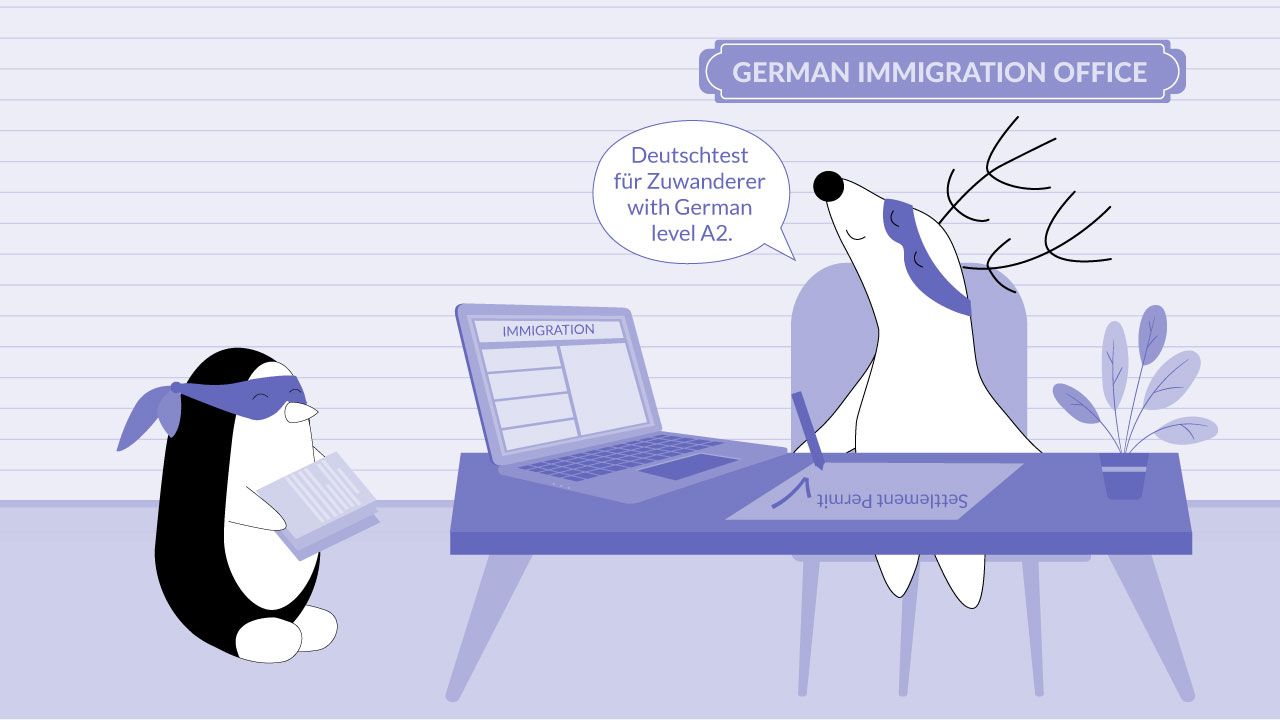
This test is meant specifically for those who wish to immigrate to Germany and want to prove their German language proficiency to get a settlement permit. The aim of this test is to ensure you have the necessary skills to successfully get by in everyday life.
It tests listening comprehension, reading comprehension, writing, and speaking. The topics are related mostly to covering the general, everyday needs of a person living in Germany. These are, for example, communications with authorities, visiting banks, looking for a job, applying to a school, etc.
Every migrant aged 16 and over can take this test in certified institutions around the country. You can take the test for free if you obtain funding from Bundesamtes für Migration und Flüchtlinge. Otherwise, the price is around EUR150.
How to Prepare for Language Certification
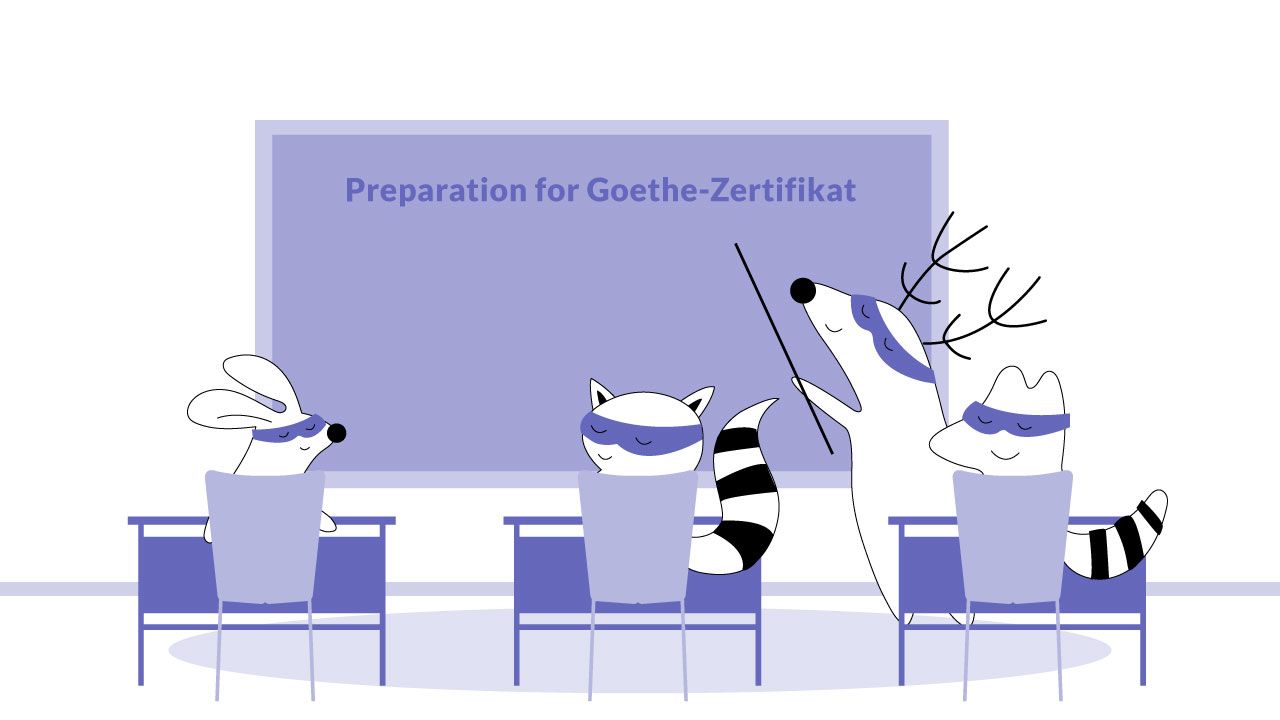
If you want to start early and have the time, enroll in a German language course that will help you improve your skills. Make sure to find one that is accredited by recognized authorities, such as Goethe Institute or telc.
Those courses use the latest teaching methods and goal-oriented approaches, which will help you prepare faster and better for your certification test.
You can also look for other self-study materials like books, audio material, video tutorials, etc., to practice on your own until the exam date arrives. Practice speaking with native speakers, listen to written text recordings like newspapers or magazines, read books and write essays – all of this will help you get accustomed to the exam and test environment.
It is also important to practice your listening skills, as they are often neglected but can have a big impact on your test results. Listen to audiobooks or podcasts on various topics, watch movies in German, and study with a native speaker. This will help you improve your understanding of written and spoken text, which is an essential part of any language certification test.
The key to success when preparing for these tests is consistency, so make sure to set up a routine that includes regular studying until you reach the level required by the exam. With dedication and consistency, you have every chance of passing your certification with flying colors!
Bottom Line
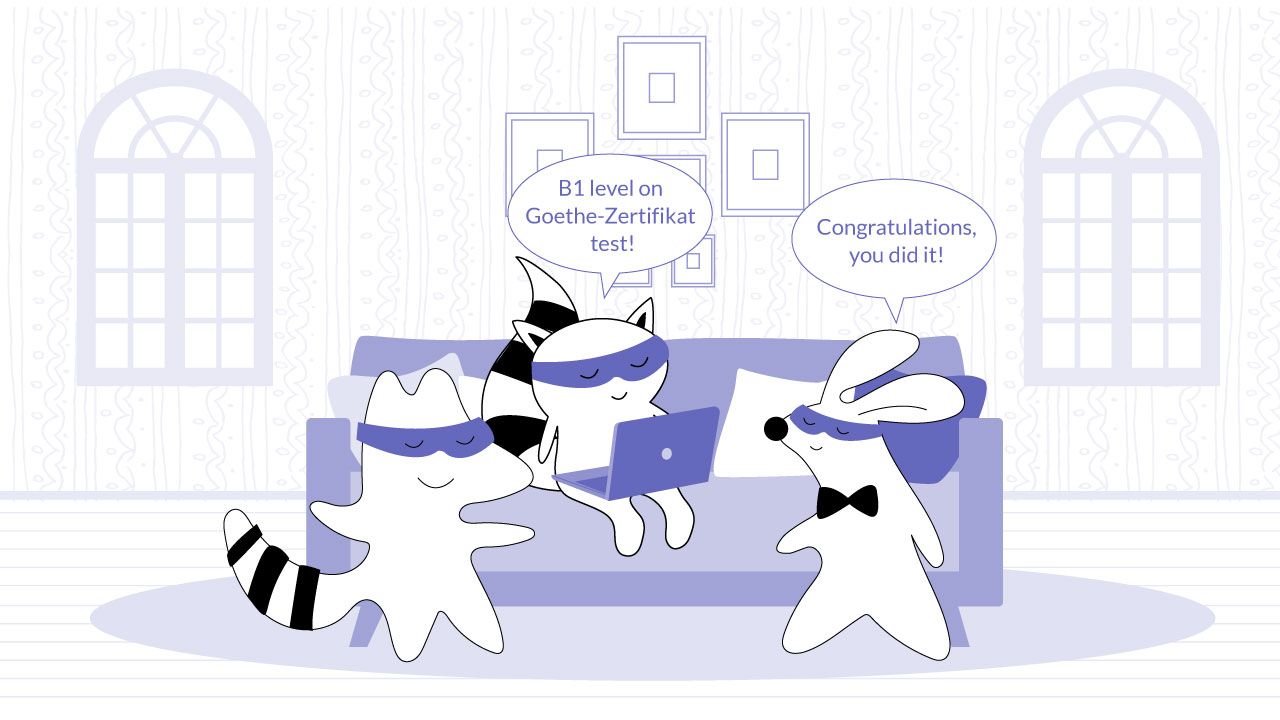
Anyone looking to certify their German language skills can find a test that is perfect for their needs and level of proficiency. Whether you are looking to get into a German university or simply want to be able to navigate your way around everyday life in Germany, there is a certification exam that will fit the bill.
At a glance, German language certification may seem daunting and difficult to obtain. However, with the proper preparation, anyone can get certified and prove their proficiency in German. Just take your time, practice, and don’t give up. Good luck!








